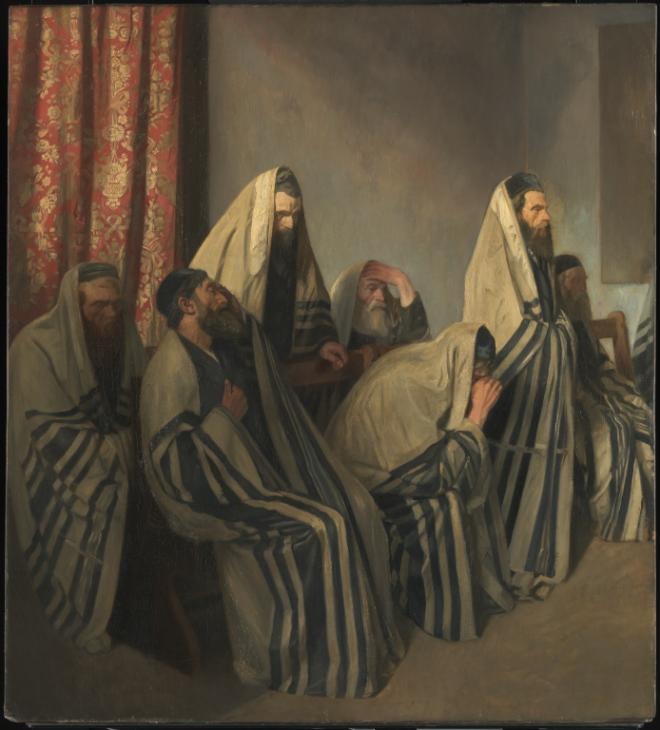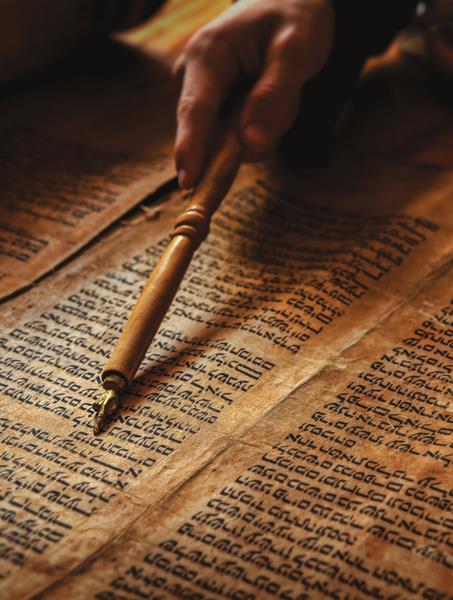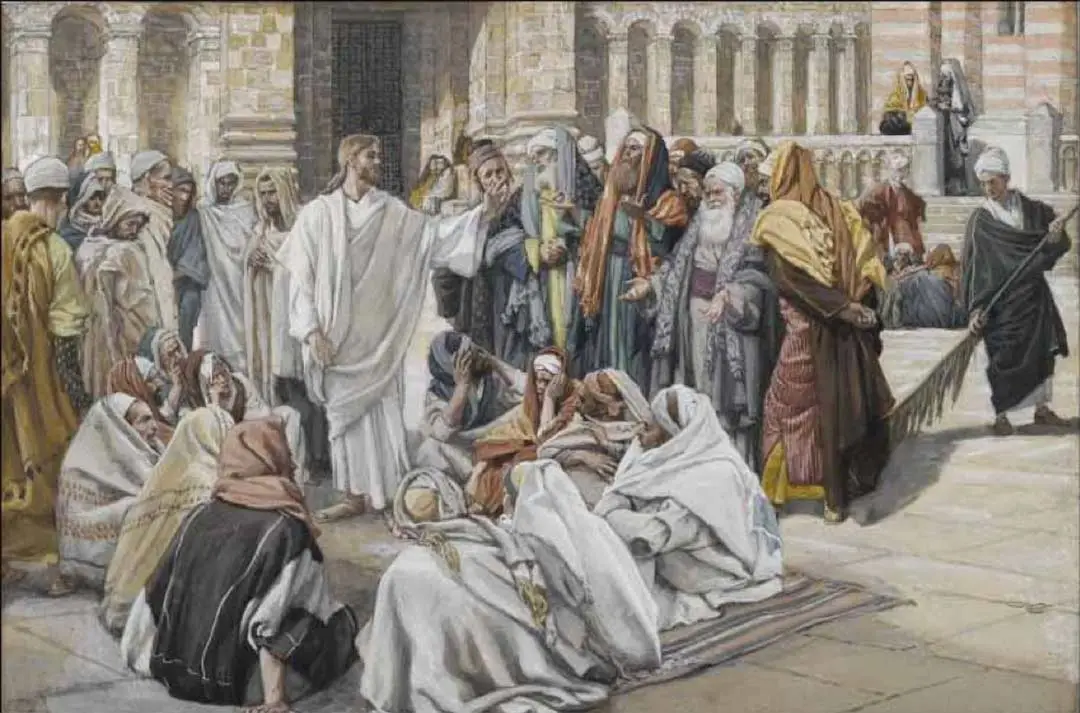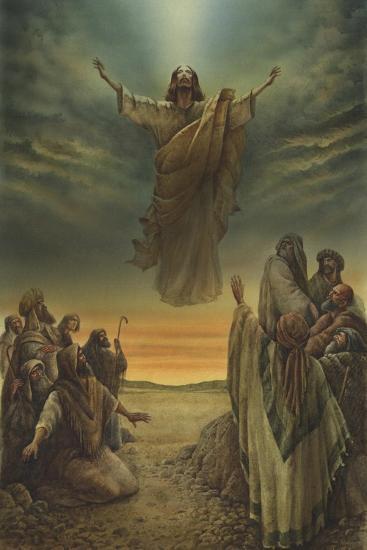
Jewish Doctrine on Death
The idea of death and the possibility of an afterlife has bewitched, bothered and bewildered mankind since the dawn of time. The pagan religions of the world were obsessed with an answer to this question. The Egyptian civilization is one of the oldest in the world and their number one bestselling book was the Book of the Dead. So, one would think that because the Jews are God’s chosen people, they of all people would have the answer to this question. But in fact, the Jews have no official doctrine on this question only theories.
The first century Jews did believe in a resurrection at some time and the Greeks believed in immortality for some people, but from these generalities there developed a wide spectrum of beliefs as to what the afterlife was actually like. The Greeks and Romans thought death brought all existence to an end. Homer wrote that an immortal element in a person went down into Hades to reside in an unconsciousness state of being. Platonists believed that death freed the soul from its body prison so there was cause to rejoice. But the soul also did not exist in a conscious state. There was a belief that great heroes and emperors might conceivably go to the Elysian Fields or in very rare cases join the pantheon of gods. But 99.9% of people just ceased to exist.

All religions universally agreed that there was no resurrection because death could not reverse itself. On this fact Homer, Aeschylus and Sophocles agreed. However, there was only one recognized religion in the world that believed in an actual resurrection and it was Judaism. The Hebrew Bible states that the spirits of the dead are kept down in the Earth in a place called Sheol. It is a rather nondescript place of shadows where the dead quietly await a resurrection at the end of time (Psalm 115:17). Clear straightforward statements about the immortality of the spirit and the resurrection are extremely rare. Only Job and Daniel speak with some clarity on this issue (Job 19:26-27; Daniel 12:2-3). The Jews do not consider Daniel a prophet as he wrote primarily about the Gentiles. Thus, Jewish scholars did not put the Book of Daniel in with the prophets. Instead, they put it in the section concerning history.
The subject of the exactitudes of an afterlife has been a topic of debate among Jewish scholars for the past four thousand years. Abraham, considered the Father of the Jewish race, was told by God that at his death, he would be gathered to his people (Genesis 25:8). The word gathered in the Old Testament literally means a person's corpse will be entombed with his other relatives. Figuratively, it means the spirit of a person would go to Sheol and rest with their other relatives. Prophetically, it meant that at the end of time, a Messiah would appear and usher in a new age of peace and harmony and those resurrected would be able to participate in this era.
So the Jews have always know or at least suspected that there was some form of existence after death. Whether it was a conscious or unconscious form of existence cannot be determined by way of the Old Testament. The problem stems from the fact that the Jews rely primarily on the Torah or first five books of the Bible for their religious cannon of beliefs. Unfortunately, there are no references to where the spirits of the dead go after death in the Torah. However, there are other extremely vague references sprinkled throughout Scripture and this has allowed many Jewish scholars to string together and create many theories on this subject. Therefore, if you were to ask Jewish scholars or parishioners what happens to the soul at death, you will get a multitude of answers from there is no life after death all the way to the Jewish mystical tradition concerning the reincarnation of souls. These are spirits who did not complete their missions here on Earth and therefore are forced to return. Between these two extremes exist a lot of variations on the subject. This is why the rabbis seldom speak of life after death because there is no codified answer within Judaism. Instead, the rabbis tell parishioners that they are to focus on life here and now instead of on death and a possible afterlife. And, that life is not what a person believes but the actions a person takes to accomplishes goals.

In the first century, there was a Jewish sect known as the Sadducees who vehemently denied there was a future afterlife. They taught that, "the soul perishes along with the body" (Jewish Antiquities 18.16). However, there were some that had a vague resurrection belief, as in Josephus and the Wisdom of Solomon who wrote, "In the time of their visitation they will shine forth, and will run like sparks through the stubble. They will govern nations and rule over people, and the Lord will reign over them forever." (Wisdom of Solomon 3;7-8) This description is directly in line with statements from Jesus and Paul. The term In the time of their visitation seems to refer to the time when Christ will appear in the air and give the command to the faithful to come up. The term they will shine forth would seem to refer to the transformation of the faithful from mortal to immortal in order to withstand the physical stresses associated with being drawn up into the Earth's atmosphere. The term run like sparks through stubble may refer to the bodies of dead saints arising and passing through the ground and up into the sky. This would also apply to the living saints who will also take flight leaving behind the unrepentant people or stubble of the Earth. The term they will govern nations is spoken of by Paul when he states that the Saints will have earthly governance positions during the Kingdom Reign of Christ. And the term the Lord will reign over them forever is akin to Jesus telling His followers that wherever He is, there shall they be also (John 14:3).

There is one last resurrection quote contained in the Jewish Mishnah that reads, "All Israelites have a share in the world to come; … and these are they that {shall} have no share in the world to come: he that says that there is no resurrection of the dead prescribed in the Law." (Mishnah Sanhedrin 10.1) So it is clear that at least some ancient Jewish scholars believed that the Old Testament does refer to a resurrection and eternal life. But for the Jews, the resurrection was not to be confused with a rapture of some sort. Only the dead could participate in the resurrection as it is the reversal of death, its cancellation and the destruction of its power. And while this is a concept that all pagan religions denied, the Jews based this belief on their God and His passion for eventual justice even though they readily admit that the actual doctrine is imprecise, unfocused and confusing in various incompatible ways.
Today, Jews refer to the afterlife as Olam Ha Ba or the World to Come. They believe that the spirit of a person going to the Christian idea of Heaven or Hell is within the realm of possibilities but not guaranteed as there are many other compelling theories on the subject such as annihilation, reincarnation and, as previously explained, a resurrection. On the other hand, the Jews believe that if there is punishment for the wicked after death, it is only temporary and not eternal. The Jews also believe that if the spirits of the wicked are tormented, it is accomplished by demons of their own creation. But others believe that an unrighteous spirit is not tormented but instead is simply destroyed or annihilated at death. Thus, it ceases to exist and is erased from human memory. When a rabbi is asked by a parishioner what they thinks happens at death, a rabbi will ask them what they think happens and then respect their thoughts on this matter. This is the same technique used when a rabbi is asked if God is actively involved with the day to day events of peoples lives. There is no official Jewish doctrine on this subject either.
This being said, the Torah seems to suggest that there are immediate spiritual rewards and punishments for the departed spirit rather than abstract future ones (Leviticus 26:3-9; Deuteronomy 11:13-15). The Torah indicates that the righteous will be reunited in some way with loved ones after death while the unrighteous will be excluded from this reunion reward. The Torah specifically mentions several patriarchs that received this reward immediately upon death. Those cited in the Book of Genesis are Abraham Genesis 25:8, Ishmael Genesis 25:17, Isaac Genesis 35:29, Jacob Genesis 49:33 and Moses/Aaron Deuteronomy 32:50. Again, the term gathering is described as a separate event that occurs after the body is dead and buried and their spirit is joined with those of their family members. Conversely, a wicked and unrepentant apostate who renounces faith in God and a belief in an afterlife, will be denied access to see their family and confined to a solitary state of existence (Genesis 17:14; Exodus 31:14; Daniel 12:2; Nehemiah 9:5). Traditional Judaism recognizes the place known as Sheol or Hell, but has no official concept of an eternal Lake of Fire.
Today, belief in a future resurrection of the dead is a fundamental core doctrine of traditional Jewish theology. The Sadducees not only rejected the concept of an afterlife, they also rejected the ideas of Heaven, angels and miracles. But a second less powerful sect known as the Pharisees, found the concept firmly implied in certain verses of the Old Testament.

There has always been a general belief in Judaism that at some time in the future, a Messiah or Savior will be revealed on Earth and usher in a perfect utopian age of world peace and prosperity. At this time, the Third Temple will be rebuilt in Jerusalem and the Jewish people will be gathered from the four corners of the world to live together in the nation of Israel. Also at this time the righteous dead will be brought back to life and given the opportunity to experience this perfect utopian age. The Mishnah states that the wicked dead who do not believe in the resurrection will, “… have no share in the world to come.” (Mishnah Sanhedrin 10:1) Traditional Judaism recites the Amidah Prayer three times a day which includes a blessing that praises God as the resurrector of the dead. The Talmud states that the resurrected bodies of the dead will be rolled through underground tunnels in the Earth to Israel. So, to avoid this painful experience, many Jews choose to be buried in Israel. There is a belief that the Jews buried in Israel will have the privilege of being the first to see the Messiah. Also, all Jews throughout the world are always buried facing the east as it is believed the Messiah will come from the east. Therefore, as they are resurrected, they will be facing the coming Messiah. It is at this same time that the bodies of the righteous dead will be resurrected and reunited with their spirits. The Jews are not sure if only they or all righteous people are resurrected at this time, brought back to life and given the opportunity to experience this perfect world. The position or ranking that a resurrected person holds during the Messianic Age is determined by a merit system. This system is based on a person’s actions in life and not on acquired social stature or the religion they professed. Thus, for the Jews, all humanity is capable of being considered righteous in the eyes of God and merit Heaven.
The Jews call Heaven Gan Eden or Garden of Eden. This is not to be confused with the physical Garden of Eden in the Book of Genesis. Instead, it is a spiritual place of perfection in Heaven. Only the very righteous go directly to Gan Eden upon death. The average person’s spirit must first descend down into Sheol. Some Jewish scholars consider it a lake of fire while others see it as a place of personal reflection concerning the decisions and actions a person made in life and the harm they inflicted on others. It is then that they develop and experience remorse for these actions. The prescribed amount of contemplation time spent in Sheol will not exceed twelve months at which time the now purified spirit will ascend up to Heaven. Because some people are more holy than others, some will purge more quickly and are released from Sheol sooner than most. Only unrepentant wicked dead spirits will not be allowed to ascend. Instead, they will be punished the entire twelve months and then be sent to Geihinnom (Gehinnom; Shab. 152b-153a; Tanh. VA-Yikra8). What ultimately happens to these spirits is not known. Some scholars theorize that they are annihilated and cease to be remembered by God and mankind (Psalm 34:16).

However, there are other Jewish schools of thought that believe the resurrection is an ongoing process where the spirits of the righteous are reborn to continue the process of mending the world. This idea helps to explain the traditional Jewish belief that every Jewish spirit that has ever lived or will ever live was present at Mount Sinai and agreed to obey the Mosaic Covenant of the Law.
Modern traditional Jewish doctrine believes that the body has a spirit. The Talmud and Midrash teach that when a person dies, it takes three days before the soul or spirit completely leaves the body. Even then, the spirit retains a familial relationship with the body for twelve months. At twelve months, the body is so degraded that the spirit is forced to leave it permanently until the resurrection occurs. The attributes of the spirit are vague. Some say they are as vapor while others have concluded they are fully conscious of where they are and those around them. The Midrash states that, “the only difference between the living and the dead is the power of speech (Pe 12:46). There are unresolved disputes among Jewish scholars as to how much the spirit can recall concerning the world they left behind (Ber. 18b).
In the resurrection of the Messianic Age, the spirit is said to return to the dust of the Earth which is then reconstituted into the resurrected body. It is unclear if the righteous and the unrighteous are simultaneously resurrected. The idea of eternal damnation is not supported by Jewish doctrine. A worst case scenario is that the incurably wicked are annihilated but the exactitudes are unclear (Psalm 34:16). At the end of the final Age, there will be the “World to Come” or Olam Ha-Ba when the righteous will rest in the glorious and divine presence of the Godhead in a state of spiritual bliss (Ber. 17a). This vague reference is made in (Isaiah 64:4; Ber. 43b). Only God is thought to understand the full implications of this time period.
In Medieval times, Jewish doctrine added the understanding that the spirit was immortal and that the resurrected body was also immortal. However, another theory was proposed that the body was temporarily immortal while only the spirit was eternal. Thus, the body was essentially temporary even if it was immortal for a period of time. It was further theorized that ultimately, only the spirit could ascend to the Godhead and come in close proximity with it. Whether the spirit remined that of an individual or became one with the spirits of all mankind is unclear. Orthodox Judaism has always maintained a belief in a future resurrection of the dead as part of the Messianic redemption plan and a belief in the immortality of the spirit after death. Reformed Judaism does not believe in a resurrection of the dead but only spiritual life after death.
For Jews, attaining an afterlife does not involve faith but is instead a logical conclusion. If God is all powerful and just, then in a world that He created where evil often rules the day, God will surly allow the good to ultimately triumph. Therefore, for one to say that they believe in God but not in an afterlife, is to also say that they believe that God is immoral or at least amoral. Judaism believes that God is good and that God rewards good people and punishes the unrighteous so that good ultimately triumphs over evil. The fact that Judaism is lacking a cohesive doctrine concerning the concept of Heaven, physical immortality and the ultimate destiny of the righteous and unrighteous is not an issue. The Jews would simply say, live for today, love God, love your fellow man, actions speak louder than words and trust in God knowing the details of the afterlife are in His capable hands.

However, Jesus confronted these issues concisely and with authority. He personally gave a detailed account of the human spirit, where it went before He was crucified, where it resides today at death, and a time line of events concerning the final seven years of this Age and His Second Coming. Through His disciples, He gave details concerning His one thousand year Millennial Reign or Kingdom of God Age followed by the Great White Throne Judgement of God, the location and size of the eternal home of all righteous people and what happens to people after the Millennial Reign ends. For more details on all these subjects, please visit the sites Library in the Eternity file.
On a closing note, recently a round table discussion took place featuring some of America’s most noted Rabbis. When the discussion came to death and where a departed spirit resides, the answers were as varied as those cited in this Paper. The Rabbis approached this issue much the same way as they did two thousand years ago. The prevailing wisdom of the group was that, since the Torah is not clear on the issue, a person should be allowed, within reason, to believe what they want to believe because the truth is, God ultimately decides this matter. Thus, for a person to be concerned about an afterlife serves no useful purpose because the truth is currently unknowable. So, if a person believes in a Heaven, or a place of reflection, or a physical and/or spiritual resurrection, it’s all relatively the same. Most of the rabbis simply told their parishioners that their thoughts on the issue are completely within the realm of possibilities and ended the discussion. This is not to say that a Rabbi cannot have his or her own opinion on this subject. But only to say that it is their personal opinion and there are lots of options to choose from.
Thankfully, Christians were given by Christ and later by Paul, a clear, detailed and concise description of the after life and a promise of eternal life. Further, Jesus was resurrected from the dead, obtained an immortal body, preached for an additional 40 days and then physically and publicly arose into Heaven. His promise to His followers was based on an Eternal Covenant with God the Father, sealed with His blood and ratified through His own resurrection from the dead to eternal life! (John 11:25-26)

If you enjoy the information provided on this site, please consider making a donation of any amount to help continue its production. Donate Now